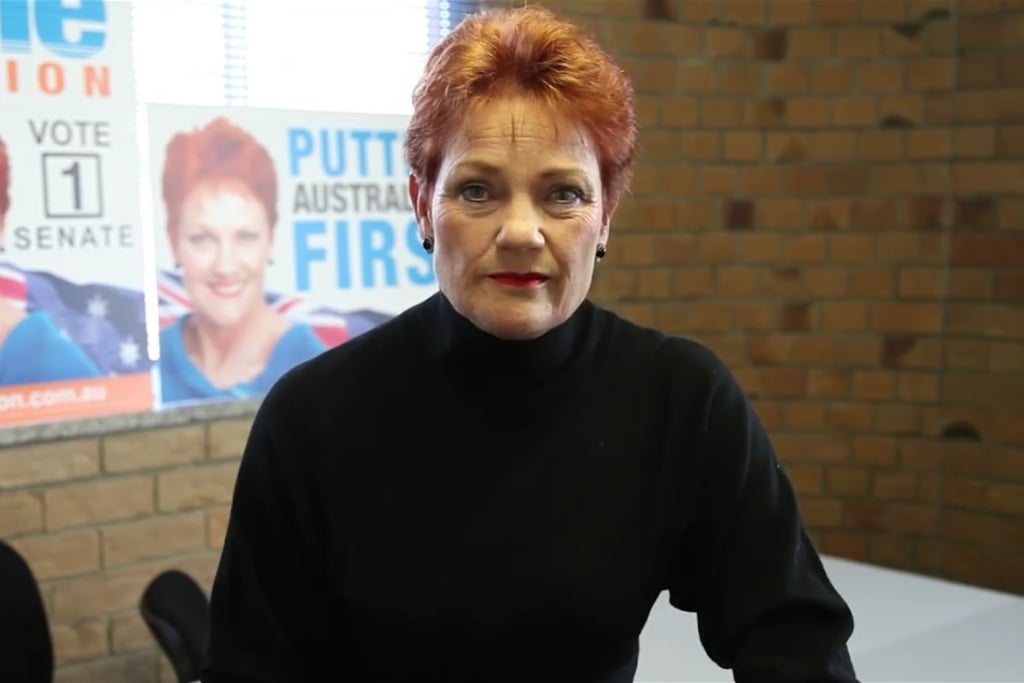One Nation Is Now More Popular Than The Greens, According To A New Poll
But what does this actually mean?

A new poll of more than 2,000 Australians has found support for One Nation is at nearly 10 percent, twice as high as the party’s senate vote at the last federal election.
That means that as tempting as it is to keep treating Hanson and her crew as joke, it’s way past time everyone hostile to their agenda viewed them as a serious, and fast growing, threat.
The poll, undertaken by ReachTEL, had One Nation’s primary vote on 9.7 percent, higher than the Greens’ figure of 8.9 percent. Overall, Labor was ahead of the Coalition 54 percent to 46 percent in two-party preferred terms.
“one nation outpolls the greens” https://t.co/i76dl6KXx3
the 90s are back baby!
— invadraham bloodshed (@pleasedontatme) January 15, 2017
ReachTEL also asked voters about the recent Centrelink automated debt recovery debacle. According to the results, 46 percent of people want wanted the automated system to end and 32 percent wanted to keep it. The rest were undecided.
But the big news in this poll is the high result for One Nation, despite the fact the party just lost a senator due to bankruptcy and a number of controversies involving state election candidates.
It’s always a good idea to treat individual polls with a healthy dose of scepticism, but there’s growing evidence that One Nation is experiencing a pretty rapid rise in popularity. Last October we wrote:
“The Greens are sitting on 10 percent of the vote, according to the latest polls. And that’s after a sustained presence in parliament for two decades. The fact that One Nation is hitting 6 percent after only re-entering parliament in July demonstrates the momentum they’ve got.”
Since then One Nation’s vote has gone up even higher. A separate ReachTEL poll taken for the upcoming WA state election shows the party on 11 percent of the vote, compared to 5.5 for the Nationals and 6.1 percent for the Greens.
An aggregate of federal polling produced in December by electoral analyst William Bowe showed One Nation’s vote was growing in WA, NSW and Queensland. On current figures the party will likely pick up seats in both the WA and Queensland state parliaments.
Despite the controversies it’s clear that Hanson’s combination of xenophobia and economic nationalism is resonating amongst more and more Australians. Rather than crossing fingers and hoping for a Palmer-esque implosion, everyone anxious about Hanson’s rise should probably get organised.
